Even weeks after returning to Israel following 477 days in captivity, there remains a striking gap between the relative openness of the female soldiers about their time in the Gaza Strip and their reluctance to discuss the events of October 7 itself, Ynet reported.
They recounted in detail to their parents the conditions of their captivity, the constant danger to their lives, the treatment by their captors, the hunger, and the poor hygiene, but regarding what happened in the fortified shelter at the Nachal Oz outpost that day—during the hours they waited in vain for help, were beaten by the terrorists, and saw their friends killed—they remain mum.
Ynet spoke to the parents of three of the five female surveillance soldiers who were released: Albert Ariev, the father of Karina Ariev, Shira Albag, the mother of Liri Albag, and Yoni Levy, the father of Naama Levy. All three agree with the above sentiments: the wound from October 7 has not even begun to scab over, let alone recover.
“She simply doesn’t talk about it,” says Albert Ariev, the father of Karina Ariev. “What happened in the fortified shelter was very difficult. It’s weighing on her during the rehabilitation period; I can see that in her. Something terrible happened to my daughter on October 7. It’s clear that the period of captivity wasn’t easy, but the nightmare is split in two.”
Why is the fortified shelter taboo compared to more than a year in captivity?
“She says she saw and experienced terrible things there. She was severely injured and according to her, on that day she wanted to die. She simply wished for the outpost to be bombed from the air or something like that so that this suffering would stop. She suffered abuse there and was beaten endlessly. That’s it; she doesn’t go into more detail. She says, ‘I just went through hell that day and could have died.’ She says it was the worst day of the entire period.”
Shira Albag: “October 7 is a trauma no less severe than captivity, and we haven’t even touched on it at all. They saw their friends being murdered and then sat there [tied up] in place for four hours. Liri told me, ‘Mom, we will need to process this later.’ She hasn’t yet spoken about what happened there. On October 7, they thought it was only happening at their base. They didn’t understand the situation at all. Only after four days, when they met with other hostages, did they manage to grasp a little of what was happening in the country and that the story was much more complex. It took time for them to understand that it involved such a large number of hostages.”
“During captivity, Liri listened to the radio and watched television, mainly Al Jazeera. When she and her friends managed to understand Arabic, they also understood the situation. They realized there was a war. They also knew about the first deal because hostages who were with them were released. The captors made sure not to share anything relevant with them, only the bad things happening in Israel, like the lack of agreements and that they didn’t want to bring them back. They subjected them to psychological terror. They told them, ‘We will marry you off and Islamicize you.'”
Yoni Levy: “Naama was exposed to her infamous image from October 7. They told her. There was no choice. She is famous against her will. From what little she has shared so far, it seems that the truly traumatic event, the big one, the feeling of betrayal, and also the most shocking sights, were on October 7. The sky fell on her that day.”
Pita from donkey food
The four female soldiers released on January 25 were together during parts of their captivity but they were also separated for long periods of time. “Liri was with Agam Berger from the first day and with Naama at times,” says Shira Albag. “She was not with Daniella Gilboa and Karina. They have an indescribable connection. They experienced something we will never understand. They don’t talk about it, just hold hands when they meet and understand each other in their silence. They seemingly experienced it alone, each with herself, but being together gave them strength. Even now, when they are out of captivity, the togetherness gives them the strength to cope.”
Do they know about the videos Hamas published of them?
“They saw it on television. They made sure to show it to them there. But Liri told me, ‘Mom, it passed by very quickly.’ They didn’t dwell on it. Not like us, who sat and watched it for days.”
Where was she during her captivity?
“Liri was both in apartments and in tunnels. Most of the time she was in apartments. She said the quiet in the tunnels drove her crazy, even though there is supposedly more freedom in the tunnels because it’s a bigger space, so you can move around more. But there’s humidity and silence, a deafening silence. You don’t hear anything. When she was in civilian houses, she at least heard movement in the street, which made her understand that something was happening.
“The houses where she was were of civilians with children. And those children cursed at her, spat on her, and threatened her. We will have to deal with those children who will grow up to be terrorists. We will have to deal with them our whole lives; there is nothing to be done. We are in the Middle East, and we will have to deal with everyone.”
What did they eat? How did they maintain hygiene?
“There were times they had two meals a day, and there were times when there was nothing to eat at all for days. There were times when they ate donkey food. They made pita from it because there was no flour. Hygiene was minimal. They wore the same clothes day in and out. They fell ill with many diseases.”
How did they pass the time?
“With a lot of thoughts and daydreams. There were many associative games between her and Agam, and sometimes also with other hostages whom I can’t talk about right now. Each one had a diary and they wrote a lot. But they weren’t allowed to take the diaries back to Israel. They also sang to themselves. They took songs and made up lyrics for them.”
Karina, on the other hand, actually preferred staying in the tunnels. She provided her parents with a very logical explanation: staying above ground in Gaza during this time was a matter of life and death.
“She preferred to be down because they were bombing above all the time,” her father said. “There were days when they moved them from place to place while houses were collapsing to the right and left and shrapnel was flying at them. She told me she just wanted to be in a safe place. Even if it was in a tunnel. She didn’t care, as long as she could live.”
What were the conditions like?
“They bathed only with cold water, with a cup. She didn’t have any clothes to change into either. But she asked for a toothbrush and they gave her one. There was no electricity at any point. There were whole days when she didn’t get out of bed for a second. They could move from place to place, but sometimes they stayed a month in a room without leaving it.”
Karina spent more than a year with Daniella Gilboa. How did they pass the time?
“A girl who speaks Arabic returned to me. It’s crazy. She translated Al Jazeera broadcasts for us. They also had a notebook, so they wrote songs. They belonged to the same group that arrived at Nachal Oz, and they served for nine months at the same base. Basically, they were the two soldiers who really knew what was happening that morning. When Karina called us, she simply said, ‘A war has started. Abba, don’t come here.’ That’s how she said goodbye to us.
“They were three best friends: Karina, Daniella, and Aviv Hajaj, H’yd, who was murdered in front of their eyes in the shelter. They all arrived at the post together, they all sat in the command room together the entire time, and they were very connected to each other. So yes, it was easier for them together. Still, you know, each one has her own opinion, there were arguments in captivity, but they knew they had to survive together.”
Yoni Levy: “Naama was in captivity with other hostages and occasionally with some of the female soldiers. There were quite a few transitions, changes, splits, and reunions during that time. At times, the IDF bombed the houses she was in. In one instance, they escaped at the last moment; the wall fell, and she was injured. She has difficult stories. Her biggest fear was from our bombings.”
And what about the treatment from the captors?
Shira Albag: “Liri reads people and social situations. The moment they abducted her, she understood: this is my situation right now, I am in Gaza, and in Gaza, one needs to survive like a Gazan. And she knew how to deal with them, not to clash with them. I won’t say ‘to be their friend’ but to know how to get along with them. Not in war but to play the game. Fortunately, this worked. It exceeded all our expectations. As much as we know our daughter, it truly surprised us as well. Alongside this, the terrorists slept with them in the room all the time and watched them 24/7. There was a constant fear for their lives because anything small, even a word out of place or if a terrorist stood up unexpectedly and wanted to be abusive – the treatment could change completely.”
Sometimes they are still in captivity
Even now, when they are safe at home, surrounded by people who love them, the captivity occasionally sneaks back. Images from the release of Ohad Ben Ami, Eli Sharabi, and Or Levy last Shabbos brought them back in an instant from the couch at their parents’ house to the Gaza Strip.
Albert Ariev: “Karina says that throughout her captivity, there was constant shelling and air strikes. Even today she covers her ears when a helicopter or plane passes over the house. We hope that this will pass with time.”
Yoni Levy: “We were at home, and a passing car made some noise, something we didn’t even pay attention to, and Naama got very scared.”
Shira Albag: “Liri said right after she got out, ‘We were in hell and the boys were in a worse hell.’ Now we see the girls, and they look strong, like they’re okay, and they laugh, but nothing is okay. Nothing is okay. We need to understand that. We need to get everyone out urgently so they can be close to okay. There is no prescription for their rehabilitation, and we don’t even know how to approach it yet. No one in the country knows. Even the therapists themselves. Everyone is learning, both us and Liri.”
“Liri said that not once or twice the terrorists told them, ‘When you are united, we are afraid of you. You are a force, you are a force.’ They repeated this. This is something everyone needs to hear – the leaders and the people. In these 15 months, I understood that the people are very united, but our leadership is not.”
Albert Ariev: “Karina also thinks a lot about the hostages who remain. She said, ‘Our heart is divided into 255 pieces.’ Every person who doesn’t return takes a heartbeat from her heart. She was only with Daniella throughout the captivity, but she heard from those who returned about other hostages and she knows how much evil they are going through.”
It’s impossible to be completely happy
The girls have quite modest dreams at this stage: to wake up in the morning and make themselves coffee. To have breakfast at home. To open their closet. To sleep in their bed. To shower in their own bathroom. The trivial things that were denied to them for 15 months bring them great excitement at this stage.
Albert Ariev: “Karina has a rehabilitation process waiting for us to go through with her. She was injured in the head and lower limbs. Her legs are full of shrapnel, making it difficult for her to stand for long periods and walk. She also has shrapnel in her face, so it will take time.”
What can be said to the families still waiting?
Shira Albag: “Three weeks ago, I was in their place. No matter what I say to them, they are in the lowest place. But one must not lose hope and faith. We must hold on to that. Speak to them, on the radio and television. We don’t know who is listening. It strengthens them. Liri didn’t hear us but heard from other family members, and still, it strengthened her. Just the fact that they are being addressed – they don’t lose hope. We are at war to bring them back. Liri is at home, but for me, this war will not end until the last hostage returns.”
Albag can’t hold back and bursts into tears. “It’s still hard for me,” she says. “I see Idit, Alon Ohal‘s mother, and I cry with her. A moment ago Liri was there. It’s impossible to be completely happy. Liri is also not completely happy as long as not everyone is out.”
(YWN Israel Desk – Jerusalem)

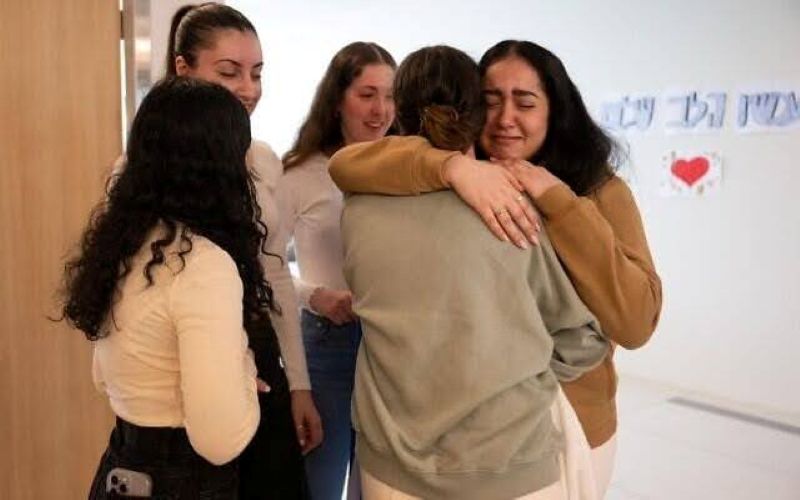




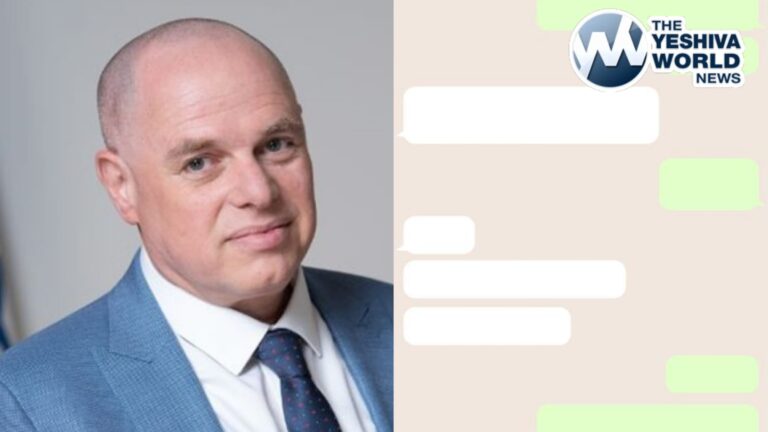
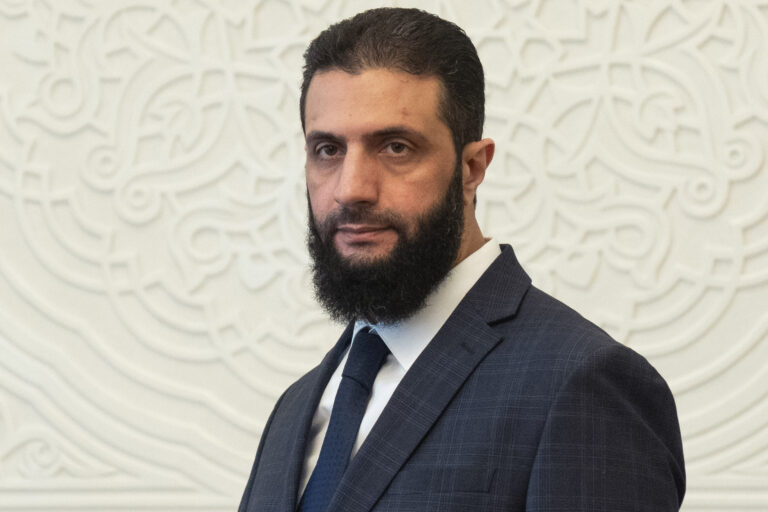
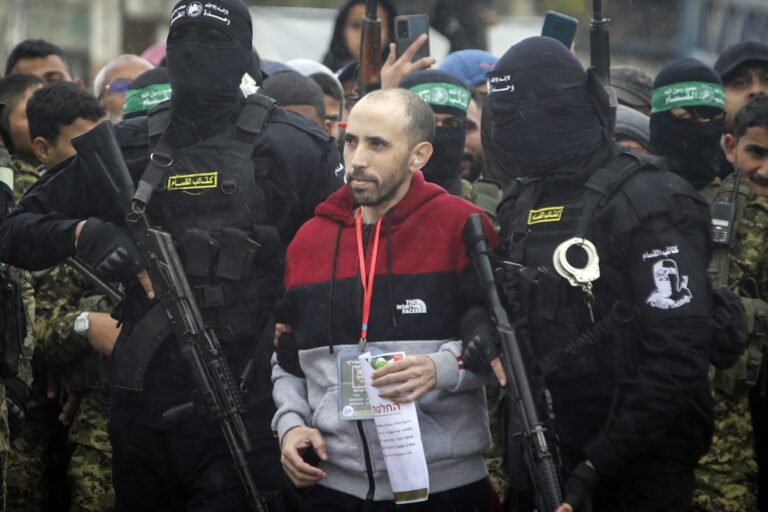
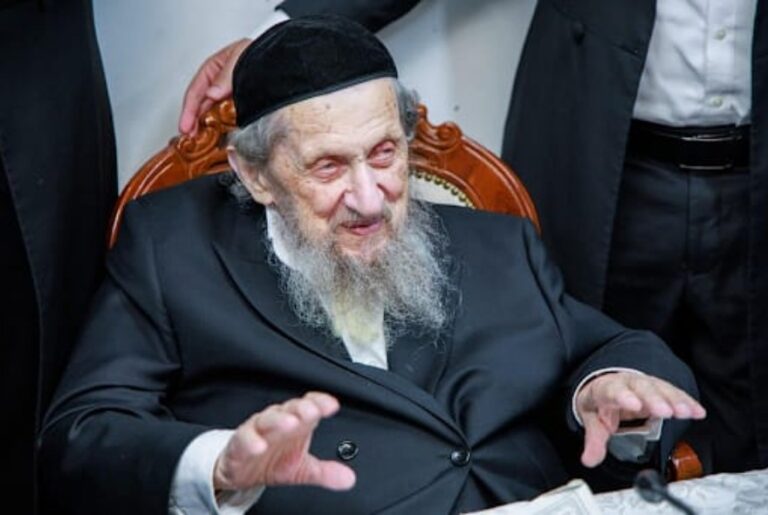


One Response
Am I dreaming ?
Didn’t Trump place a dead line of Shabbos at 12 for all hostages to be released or hell will break out ??????
What happened to this threat ????
If this just goes by without anything what Image will he have and how will his fututre threats be accepted throughout his 4 year presidential period ????
Matters don’t add up.